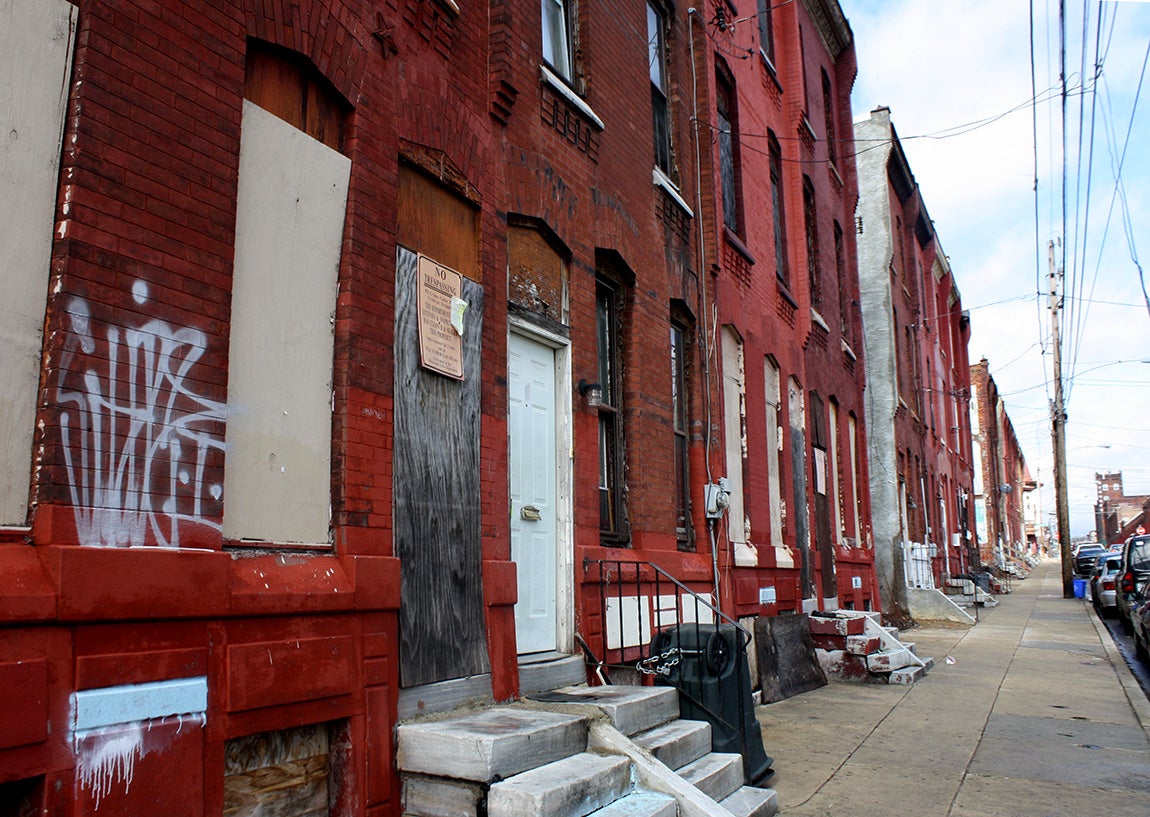Councilman Green calls for lien sales to help collect delinquent taxes

Councilman Bill Green introduced a bill into City Council Thursday that would authorize the Department of Revenue to sell tax liens on delinquent property in Philadelphia as a way to stem the city’s losses from delinquent tax accounts.
A lien can be placed on tax-delinquent property as a way for the city to recoup the debt owed even if the property changes ownership. It is a tax bill that is attached to the property itself, not just the owner. Green’s bill would allow the city to sell such liens to third-party collectors if the delinquent taxpayer does not enter into a repayment agreement as outlined under the tax foreclosure overhaul adopted by City Council last week.
Using a lien sale, the city would be able to collect the money that it’s owed directly from the the purchaser of the lien, who then has the right to collect that debt plus interest from the delinquent property owner. State law caps the interest that lien buyers can collect on top of the principal debt.
Lien sales are a common delinquent tax collection tool in other municipalities in Pennsylvania and around the country–most of which, as detailed in PlanPhilly/Inquirer reports on tax delinquency here, have higher collection rates than Philadelphia.
Our city has experimented with lien sales in the past, though not in the way Green’s bill calls for. In the 1990s, under Mayor Ed Rendell, the city bundled 33,000 tax liens and, through a bond issued by the Philadelphia Industrial Development Corporation, collected $106 million for the city and schools in one shot. Rendell’s original bundle included 90,000 liens, but some members of City Council, including then-President John Street, removed liens on properties in their districts from the sale. The city ended up defaulting on the bond repayment in 2004, forcing a bond insurance company to pay $46 million back to bondholders.
The bundled-lien sale was generally regarded as a disaster for Philadelphia, but Green’s proposal is different, allowing the city to sell tax liens one-by-one rather than in bulk. After a tax lien is sold, the property owner would have a redemption period in which he or she could pay off the debt. After that period, the lien buyer would be allowed to begin foreclosure proceedings. Green’s bill, co-sponsored by Councilmen Mark Squilla, David Oh, Jim Kenney, Bobby Henon, and Brian O’Neill, leaves much of the detail of the program up to the Revenue Department to work out through regulations.
In a conversation with PlanPhilly earlier this year, property tax expert Frank Alexander, a co-founder of the Center for Community Progress, said that tax lien sales are a mixed bag. Alexander acknowledged that selling tax liens is attractive to revenue departments because it allows them to keep money coming in without hounding delinquents, but said that collection is only part of the picture. Governments have an interest in community health and development generally, he said, while lien-buyers’ sole interest is in maximizing the return on their investments.
“The interest of the government is not to maximize the return on investment but to get taxes paid up front, or if not paid, to get a new owner who will pay the taxes,” Alexander said.
Green feels that the bill would provide the Revenue Department another tool for collecting delinquent taxes, an option it can exercise when taxpayers have shown they’re unwilling to pay.
“This legislation will allow the City to receive the tax revenue it is due and improve the overall tax collection rate,” Green said in a press release on Thursday. “In cities like Camden, tax lien sales are helpful with a collection rate in the high 90s. If Philadelphia collected taxes at that rate, it would result in an additional $75 million for schools and the general fund.”
WHYY is your source for fact-based, in-depth journalism and information. As a nonprofit organization, we rely on financial support from readers like you. Please give today.



